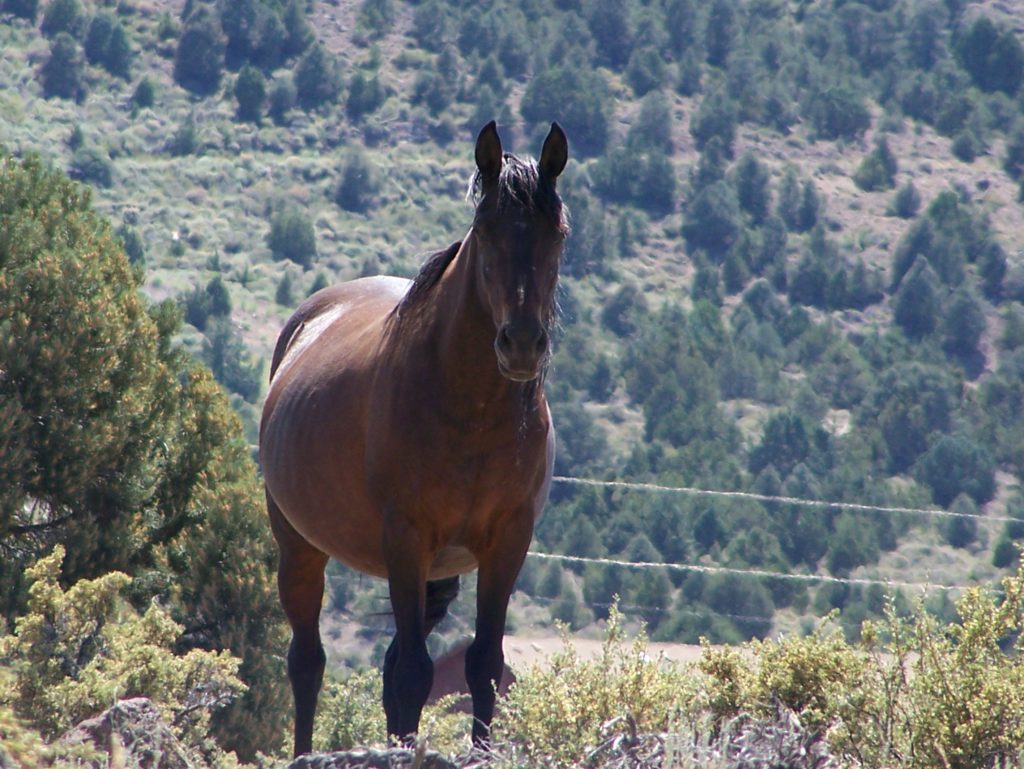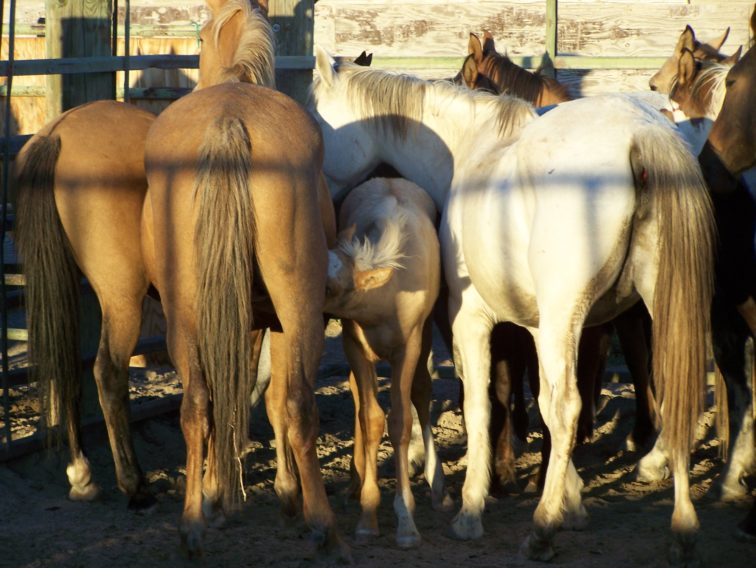Despite strong opposition, the Bureau of Land Management, (BLM), intends to move forward with gruesome and dangerous sterilization experiments on wild mares.
The proposed research procedures are risky-to-deadly and to move forward is irresponsible, unethical and inhumane.
Thanks to caring and compassionate donors like you, Front Range Equine Rescue is able to initiate legal action against the BLM’s plan.
FOR IMMEDIATE RELEASE

Front Range Equine Rescue Files Suit to Stop Surgical Sterilization ‘Research’ on Oregon’s Wild Horses
Nonprofit Horse Rescue Group Challenges Inhumane Experimental Surgery
HINES, Ore., July 26, 2016 – Front Range Equine Rescue (FRER), a national nonprofit working to end the abuse and neglect of horses through rescue, advocacy and education, announced today it is suing the U.S. Department of the Interior’s Bureau of Land Management to stop the BLM’s experimental sterilization of wild mares in Oregon. The lawsuit was filed late yesterday in federal court in Washington D.C.
FRER’s suit contends the BLM’s intention to conduct surgical experiments on 225 wild horses, many in various stages of pregnancy, and potentially thousands more horses over time, causes harm and suffering in violation of federal law.
The sterilizations on wild mares proposed by the BLM, to be carried out in collaboration with Oregon State University, include three untested, dangerous procedures:
- Slicing open the mare’s vagina while sedated, but awake and standing, and blindly pulling out her ovaries – a risky and controversial surgical procedure even for tame mares under the best of conditions, let alone captive wild horses in a holding facility
- Burning and then cutting the sedated, but conscious horses’ fallopian tubes, a procedure that is surgically untested on horses
- Using a laser, inserted through the vagina, to scar and seal the ovaries – another surgery that has never been studied in horses
Earlier this year, FRER filed formal comments opposing the “research” that will be done on conscious animals in long-term holding. These comments – and comments submitted by more than 20,000 members of the public – were disregarded, prompting FRER to file its suit.“It is unjustifiable for the BLM to conduct such barbaric sterilization experiments with a host of known risks, including death, on captive wild horses,” said Hilary Wood, President of FRER. “Performing unproven surgeries in a holding pen, let alone on the open range, is contrary to the BLM’s congressional mandate to care for wild horses, especially when responsible alternatives like the PZP contraceptive vaccine already exist to maintain population levels and ensure herd viability.”
“These sterilization procedures are not documented, practiced, or analyzed in non-surgical settings; they are overly invasive, and they are unlikely to have applicability for mares on public lands,” said Laureen Bartfield, DVM, an expert in population control of wild horses and the social structure of herds. “Two of the three procedures have virtually never been performed on horses, and the unvisualized removal of the ovaries, while documented in the literature, is disfavored by reputable veterinarians. The BLM’s plan is not just clinically ill-advised, it constitutes animal cruelty on a large scale.”

The plans for eventual widespread sterilization of horses on the range will also run up an estimated cost to the taxpayers in the millions – and the first of the funds could be handed to OSU in the form of a BLM grant. This first group of mares to go under the knife are in BLM custody in the Hines Corral in Eastern Oregon.
FRER’s lawsuit says the experimental sterilizations represent a conflict of interest, and are not in the best interests of wild horses, but rather in the BLM’s own best interest by reducing their management load without considering their mandate to properly manage the horses.
This is not the first time the BLM has pursued surgical sterilization for wild horses. In 2011, a federal court found the bureau’s plans to castrate wild horses captured in Wyoming was of an “extreme and irreversible nature.” In 2012, the BLM was again forced to defend similar plans in federal court, and abandoned its efforts to castrate Nevada’s wild horses.
The grim reality facing these innocent wild mares includes
- Invasive surgery performed in a non-sterile environment
- No known studies on domestic mares for the tubal ligation procedure
- No known studies on domestic or wild mares for the Hysteroscopically-guided laser ablation procedure
- Procedures to be performed on wild mares in varying stages of pregnancy
- Infection, hemorrhaging, colic signs, aborted foals, potential for abnormalities in foals born, and death “If any gestational group in any procedure meets a major complication rate greater than 20 percent” then the procedure will be stopped
- Major complications leading to death or the need for euthanasia are “expected” to be less than 2 percent (225 mares are slated for the research; 25 in a control group; 200 divided up for the three procedures)
- Wild mares will be frightened as they are separated from their herd mates They will be even more terrified when driven into a confined chute to be sedated and restrained for the surgery
- Ovarian function plays a significant role in the endocrine (hormonal) system. To destroy this biological function will damage behavior and health of surviving mares
I thank everyone who was able to contribute to allow us to initiate this lawsuit. Legal action is expensive and can be lengthy. We need funds for the next phases of our lawsuit against the BLM.
Please give to help the fight to spare the wild mares!
I need your help NOW to move ahead with the next phase of our legal effort to stop this waste of taxpayer funded research and blatant cruelty to innocent wild mares.
If you’d like to donate by check or money order, please click here.
The time to act is NOW. I can only do this with your help.
“I cannot thank everyone enough for donating to launch this lawsuit. Now we need to raise $7,500 to cover the next steps to help these wild horses. We truly value your loyal support of our work. Working together we have changed many horses’ lives for the better!”
For the horses, Hilary T. Wood, President/Founder
